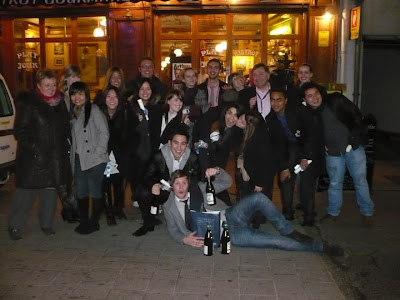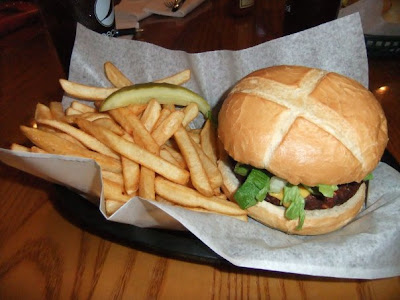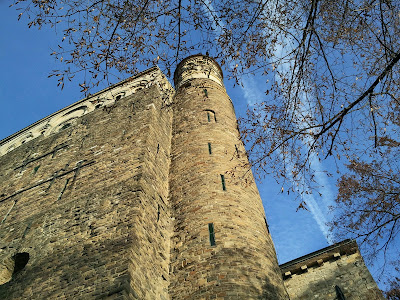
Kirra (centre) with fellow AIM Overseasers
Kirra Loh is currently completing her final semester of a Business and Commerce degree at the University of Newcastle. Kirra recently chatted to us about what it was like to experience French culture and hospitality whilst studying AIM Overseas’ International Business and Advertising Program as well as sharing a hilarious story highlighting the importance of paying attention in geography class!
Hi Kirra! Tell me a little about yourself and what you’re doing at the moment.
I’m currently studying a bachelor of Business and Commerce at the University of Newcastle, majoring in marketing and accounting. I’ve got this semester to go and then I’ll complete my degree. I’m hoping to find a marketing job once I’ve finished.
Congratulations on almost finishing your degree! Could you tell me about the AIM Overseas program you completed earlier this year and why you chose it?
I completed the International Business and Marketing Program in Tours, France. I chose this program because another one of my friends got accepted into AIM Overseas’ Health Care in Mexico Program and she suggested that there might be a program for me. So I looked up the website and saw the International Business and Advertising program and I thought, “This looks really good!” I think I ended up applying really close to the cut-off date but luckily I got accepted – so it was all really exciting!
Was this your first time overseas?
I’d been to other countries before but not Europe. Also, I’d never travelled without my parents before so it was a little bit daunting when I first left the airport in Sydney, but it ended up being fine.
What was a typical day like for you during the course?
We got a schedule at the beginning of the program and at first we were all like, “Oh yeah, no problem!” but actually it was really demanding and we didn’t have that much free time! We had different modules to complete with different teachers so it was not boring at all because it wasn’t as if we were doing the same thing everyday from 9 to 5.
On a typical day we’d go to ESCEM [the business school] and the school would provide us with lunch. We’d have our classes: half the class would be the AIM Overseas students and the rest were French students, so we’d mix with them. We’d usually do heaps of group work with them and the mix of Australian and French students meant that we got a wider perspective of marketing. In addition to the classes, ESCEM also organised cultural activities for us such as a cooking class, field trips and some survival French lessons, so it wasn’t all just academic stuff.
We had a few free weekends during the program as well. One weekend I went to Bordeaux with two of the guys on the program. Then the next weekend I went to Geneva in Switzerland with the girls from the program. I think most of the others went to Paris and a few of the boys went to Lucerne in Switzerland one weekend as well.
What was it like working with local French students?
It was a bit challenging at times because of the language barrier. I mean, the classes were all in English, but sometimes we’d have difficulty understanding the other students! The French students in our group were quite good and I discovered that some French people don’t like to speak English because they don’t think that they speak well enough. I found this really surprising, and of course we reassured them that it didn’t matter! So I think it was good for us to work with them as it gave us a wider perspective on marketing, and it was good for them as they were able to improve their English by speaking with us.
Did you gain any insight into French culture?
I guess a lot of people think that French people are rude – but in my experience they weren’t at all! Everywhere I travelled, the French were really friendly and it really surprised me. I’ve studied some French before in high school but I’ve forgotten most of it and I was too embarrassed to try to speak it; but it turns out I didn’t even need to speak French because everyone had really good English and was extremely helpful! And as I said before, I found out that the reason why a lot of French people don’t like to speak English is because they think that their English isn’t good enough.
I liked how the French really enjoy their food and their cooking and lunchtime is always a massive, drawn-out affair. They just seem to enjoy life and take it at a slower pace. No one is in a huge rush. Even in Paris, I had expected to see more hustle and bustle, but they had a really relaxed lifestyle. And of course, France really lived up to the hype of having beautiful food, wine, and so on!
Do you have any funny travel anecdotes you’d like to share?
Well during the trip we planned a trip to Geneva, Switzerland. At the time, we didn’t realise that Geneva was so close to the border with France. So we got off the train in Geneva and there were these two signs: one sign for ‘France’ and one sign for ‘Switzerland’; we were a bit confused but we just walked on anyway and had lunch. After lunch, I asked the waitress, “How do we get to our hotel?” She replied, “Ummm... it’s in France. You have to go back over the border.”
At this point we’re all panicking and thinking, “WHAT??!!! We got a train all the way to Switzerland and we’re in the wrong country! Oh my God, WHAT DO WE DO???!!!”
We were so stupid, we didn’t realise it was that close to the border! It didn’t end up taking that long at all, we just had to walk over. *laughs*
So your knowledge of the geography of Europe has definitely improved through this program then?
Ooooh definitely! *laughs* I really love how the countries in Europe are so close to each other and it’s great to go travelling anywhere!
How has this program has changed you?
It’s been really good – I’ve made some great friends and we’ve stayed in contact. Some of the girls from Adelaide have come and stayed in Newcastle and a bunch of us are going to spend a weekend in Melbourne together as well. There was one girl on the program from my uni and I didn’t really know her before but now we’re really good friends and hang out a lot. I think it was a great experience to stay in one country for a longer period of time. In one month in France we were able to truly experience the culture and get a perspective of marketing that I found really different to what we usually learned at uni. We also got to work with French students, which was great.
Lastly, what would you say to someone who’s thinking about participating?
I definitely think it’s a great experience: you meet so many people; it’s a different form of learning compared to just a normal tutorial or lecture in university; it allows you to work with students from a different cultural background; and, you get to experience the culture by living there for a month.
It’s also sparked some interest from employers; for example, I had a job interview recently and during the interview they mentioned, “Oh, you did a short program in France! What was that like?” – so doing a program like this is something you can add to your CV. I think that this was a really good experience and I tell everyone about it!
Thanks Kirra!

In Cheverny doing a wine course (for educational purposes, of course!)

Doing a French cooking course

Just your average, run-of-the-mill building in Tours, where Kirra lived for a month

Kirra and the AIM Overseasers at the conclusion of their farewell dinner
























